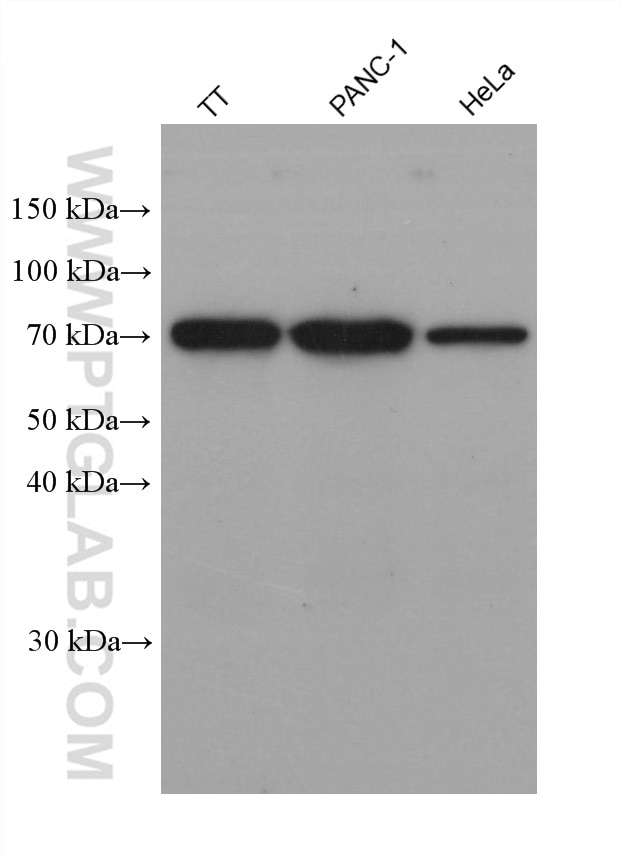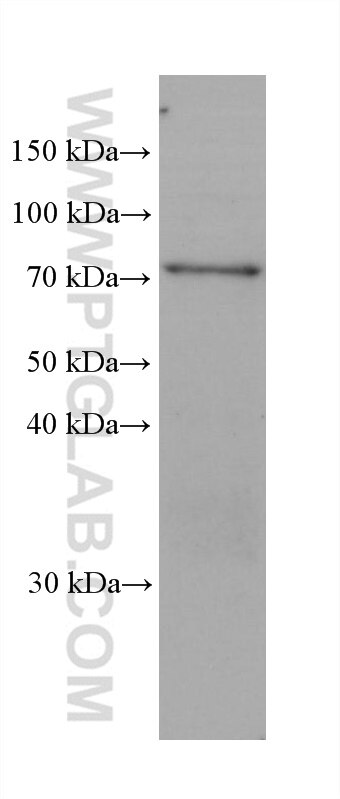Tested Applications
| Positive WB detected in | TT cells, hTERT-RPE1 cells, PANC-1 cells, HeLa cells |
Recommended dilution
| Application | Dilution |
|---|---|
| Western Blot (WB) | WB : 1:5000-1:50000 |
| It is recommended that this reagent should be titrated in each testing system to obtain optimal results. | |
| Sample-dependent, Check data in validation data gallery. | |
Product Information
67194-2-Ig targets SHC1 in WB, ELISA applications and shows reactivity with human samples.
| Tested Reactivity | human |
| Host / Isotype | Mouse / IgG2b |
| Class | Monoclonal |
| Type | Antibody |
| Immunogen | SHC1 fusion protein Ag25173 Predict reactive species |
| Full Name | SHC (Src homology 2 domain containing) transforming protein 1 |
| Calculated Molecular Weight | 63 kDa |
| Observed Molecular Weight | 66 kDa |
| GenBank Accession Number | NM_183001 |
| Gene Symbol | SHC1 |
| Gene ID (NCBI) | 6464 |
| Conjugate | Unconjugated |
| Form | Liquid |
| Purification Method | Protein A purification |
| UNIPROT ID | P29353 |
| Storage Buffer | PBS with 0.02% sodium azide and 50% glycerol, pH 7.3. |
| Storage Conditions | Store at -20°C. Stable for one year after shipment. Aliquoting is unnecessary for -20oC storage. 20ul sizes contain 0.1% BSA. |
Background Information
The proto-oncogene SHC family consists of SHCA, SHCB, SHCC, and SHCD4 gene members, which can encode 7 kinds of cohesive molecules. SHC family is widely expressed and functional. The SHC1 gene is located in zone 1, region 2 of human chromosome 1. SHC1 is believed to be involved in inhibiting neuronal apoptosis and regulating the receptor tyrosine kinase pathway. SHC1 sensitizes cancer cells to the 8-Cl-cAMP treatment.
Protocols
| Product Specific Protocols | |
|---|---|
| WB protocol for SHC1 antibody 67194-2-Ig | Download protocol |
| Standard Protocols | |
|---|---|
| Click here to view our Standard Protocols |





